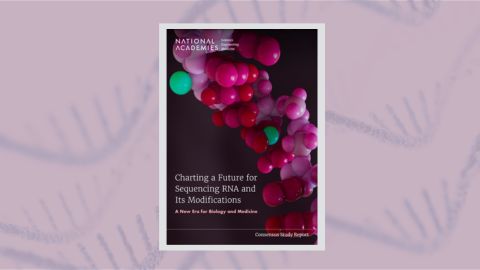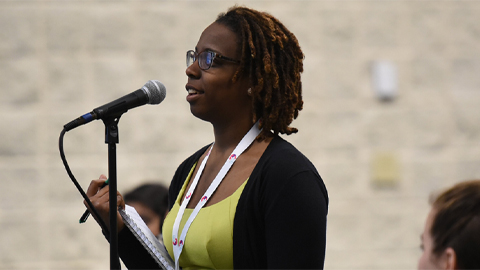What is science policy?
Most people assume policymakers spend all of their time furtively hammering out laws in back rooms. In reality, those working in science policy have the opposite job: They take what is happening on the bench and bring it to the light of day. One of the best-selling points for science is showing how discoveries inside the lab will benefit everyone outside of it. This means saving lives, creating jobs and promoting education. Science policy experts thus serve as the bridge between researchers and the public, using their talents to find ways to translate esoteric, often highly technical scientific issues into something that can be sold as good policy. Some people who do science policy have advanced degrees in their fields; some are just really good at advocating for a topic that they believe in. What all science policy experts have in common is literacy in science, economics and politics.
Policy is a two-way street between the government and the public, and policymakers can work at either end, either directly for legislators or for societies like the American Society for Biochemistry and Molecular Biology. Congressional members employ people who are experts in the scientific field and who serve as conduits between the legislators and their scientifically focused constituents. In this situation, science policymakers are responsible for formalizing the members’ stance on a particular scientific topic, drafting legislation that addresses relevant issues and helping them determine how to vote on certain bills. On the other hand, policymakers working at scientific nonprofits promote positions on behalf of their societies’ interests. Workers on both sides are well-acquainted with each other and use these personal connections to help formulate policies that are mutually beneficial, while still appeasing their own constituencies.
In addition to their own staff members, politicians often rely on outside policymakers and analysts to interpret the laws and bills that they draft. For example, congressional committees often reach out to societies like ASBMB for expert opinions on scientific topics. Sometimes, the societies’ recommendations even make it to the actual bill, as evidenced when a recent U.S. Senate appropriations bill contained language put forth by FASEB in its fiscal 2011 National Institutes of Health budget recommendation to Congress. Policymakers also put together unsolicited proposals and position statements that are aimed at broad audiences (for example, ASBMB’s recent statement on stem cells).
Another side of science policy is the production and analysis of scientific reports in response to directives from lawmakers. Government agencies and self-contained offices are filled with science policy experts to handle such issues. Outside of the government, the various institutions within the National Academies produce a constant stream of reports analyzing policies on topics ranging from natural disaster preparedness to patent regulations. One of the most prominent recent reports was the National Academies’ “Rising above the Gathering Storm,” which analyzed the state of American science education and competitiveness. The conclusions reached by the authors led to passage of the America COMPETES Act in 2007, which aimed to increase scientific literacy and productiveness through stronger education.
With people coming from many different backgrounds to work in science policy, it is clear that there is no single way to enter the field. Several societies offer science policy fellowships that allow recent doctoral graduates the opportunity to work in the field, either for the society (e.g., the National Academies’ “Christine Mirzayan Science and Technology Policy Graduate Fellowship Program”) or within the government (the American Association for the Advancement of Science “Science and Technology Policy Fellowships”). Mid-career scientists also can get involved in science policy through a professional society, for example, by joining the ASBMB Public Affairs Advisory Committee. Although each opportunity provides experience from a unique perspective, they all rely on a healthy dose of scientific expertise combined with a passion for advocacy. In these uncertain economic conditions, there never has been a better time to promote the benefits of science.
Enjoy reading ASBMB Today?
Become a member to receive the print edition monthly and the digital edition weekly.
Learn moreFeatured jobs
from the ASBMB career center
Get the latest from ASBMB Today
Enter your email address, and we’ll send you a weekly email with recent articles, interviews and more.
Latest in Policy
Policy highlights or most popular articles

National Academies propose initiative to sequence all RNA molecules
Unlocking the epitranscriptome could transform health, medicine, agriculture, energy and national security.

ATP delegates push for improved policies
This ASBMB program helps advocates gain skills to address issues that affect science and scientists.

Advocacy workshops at Discover BMB 2024
Topics include running for office, becoming an advocate, and navigating the grant review process at the NIH.

NIH’s advisory committee releases report on re-envisioning postdoc training
The working group developed six primary recommendations for the National Institutes of Health.

When authoritative sources hold onto bad data
A legal scholar explains the need for government databases to retract information.

Can science publishing be both open and equitable?
An updated memo from the White House Office of Science and Technology Policy has researchers, funders and publishers looking ahead

